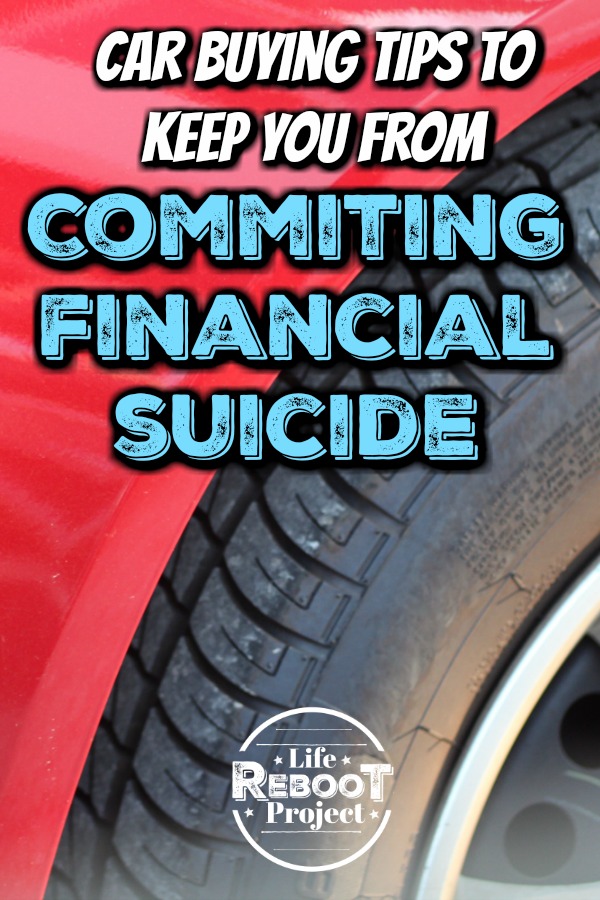I bet the thought never hit you. You sat there with the pen in hand ready to sign your life away on the purchase of a new car. The feeling can be exhilarating. In only a few short minutes, you will be driving away in your brand-new car. That new car smell just drives anyone wild. Why do you think they make an air freshener called ‘New Car’? It’s like catnip to the American shopper’s soul. But what if, instead of a car, you considered something more adventurous? Imagine the thrill of hitting the off-road trails with one of the 400ex ATVs available for sale. Now that’s an excitement worth exploring!
But, let me shock you back into reality. It smells more like death. Financial death to be exact. You’re buying something that depreciates faster than a freshly sliced avocado. Now that’s tough to do. Don’t believe me. Here are the cold hard facts about owning a brand-new car.
Car Buying Tips #1; A new car depreciates as soon as you sign your name
They depreciate as soon as you sign your name. Because once you take possession of it, they are a used car. I’ve heard some higher-end brands like Cadillac, will depreciate $10,000 to $20,000 as soon as you drive it off the lot for the first time. Most people will not even put enough of a down payment into the deal to cover the amount the car is worth as soon as you drive it away. Think about that again.
You plunk down $5,000 of hard-earned cash, weekend working money instead of watching your kids’ sports games, and overtime cash instead of enjoying time with your friends. Then, you sign your name, and your car has depreciated away all that blood, sweat, and tear money. What a shame.
Depreciation is the first reason to stay away from new car deals, especially early in adult life. Being fresh out of college or just starting a new family, is not the time to put yourself in debt over a car. There are better options and better things you will need to spend your money on at this time in your life.
Car Buying Tips #2; The car depreciates, and you pay more than it was worth new
Here is probably the worst thing. Interest rate plus depreciation is the one that makes me cringe worse than anything else in the world because I hate interest. Except, if it’s putting money in my pocket instead of taking it out. That is tough to do, but it is possible. But, that is a different article. Anyway, because I’ve worked so hard for my money my entire life I value every last cent.
Let’s say you buy a new car for $20,000, or a used car for that matter. You finance the balance of the car. You might end up paying $25,000 to $27,000 for that car because of the interest. I hear so many people say, “I got an excellent deal on that car.” Ah, from my perspective, you didn’t. If you are paying $27,000 for a car that is only worth $18,000 to $20,000 as soon as you drive it away, it looks like you got taken to the cleaners. I wouldn’t feel great about that.
Car Buying Tips #3; Buying a car after most of the depreciation is done
There is a sweet spot for buying a used car. You will need to figure that out for each make or model in which you are interested. It will most likely be in that one to two-year-old range. And, the fewer miles, the better. Age and mileage will be the two most prominent determining factors in the price of a used vehicle. Options will drive the price up substantially. But, if you are comparing two cars with similar options, the amount will vary the most because of mileage and the model year.
If you want a real sound piece of mind on a used car, look into the dealer-reconditioned used cars. These are cars the factory buys back, they go through and inspect and recondition them, they certify them, and they will usually put some warranty on them as being ‘dealer certified.’ If you are someone looking for a good deal with a warranty, this might be your best option.
Car Buying Tips #4; Paying cash for a car
This tip is the one I love. Did I mention I hate paying interest? This tip is where your negotiating savvy will pay off. When you can pay cash for a car, you are negotiating to keep that last little bit of money in your pocket. You’ve already done the hard work of earning and saving. Now, it’s time to go out and get yourself a reward. The best thing you can do is use a similar mindset to buying a car as some people use to repaying debt. It’s called the snowball method.
Early in your life, you save up and buy your first car. It’s not much. It’s cheap. It doesn’t always look nice. But, it gets you to and from work. Then, you start putting budget money into an envelope for your next car. After a couple of years, you sell your first car, take the money out of the envelope, and buy your next vehicle. Now you can afford something a little more luxurious and still pay cash.
Then in two more years, after still saving in the envelope, you sell that car, take the money, and buy yourself something a little better yet. Pretty soon, after several cycles of this, you are buying a $15,000 to $20,000 car in cash. One with all the bells and whistles which you’ve always dreamed of. Each saving and sale of the old one, will ‘snowball’ into the purchase of the next. Now, it’s just my nature, but I put a cap on this for myself.
I chose not to spend over $15,000 in cash for a car. I know the ‘snowball’ could have taken me much higher. At that cap limit, I have all the amenities I want in a car, and I don’t see any more real value in anything at a higher price. Different parts of the country will have different price points, but for where I live, $15,000 will keep me in a pretty nice car which I really won’t have to worry about breaking down. A vehicle above $15,000 adds no more value to my life. Oh, I have dream cars. If I win the lottery, I may break that rule and buy something worth $18,000.
Car Buying Tips #5; Selling the car before it’s worth nothing
This tip is the crucial factor in that ‘snowball’ method I talked about earlier. You can only keep that car each time, so it still holds some resale value. You can hold on to something so long that it will be worth next to nothing. Sometimes mileage and year will be this determining factor. Other times, breakdowns and repair costs will be the determining factor. You will need to keep your eye on your savings and the market for the next car. Have your next car kind of picked out.
Know what kind of car and the options you want, your ideal price range, and keep an eye on the trade-in value of your current vehicle. You can look online to see the value of your current car by comparing prices of stuff that is similar to yours that is up for sale. There is a saying in the area where I live, “When it starts to nickel and dime you to death, it’s time to get rid of it.” When your car seems to start breaking down more and more, it’s time to sell it and move on.
Car Buying Tips #6; Having peace of mind on your car because of the warranty
You would be better off having a substantial emergency fund and being able to pay for repairs or maintenance in cash without paying those interest charges. Plus, you can get warranties on used cars too. Don’t be lured into the thought of having a warranty steer you into a new car purchase. Buy a car from a good, reputable, used car dealer after the central portion of the depreciation is knocked out of the car. Get yourself a warranty, and it will be like driving a new car, just cheaper.
I don’t think there is a perfect system out there, but these tips should at least help you stay on the right path. If we want a quick summary, the fundamental goal is never to pay any interest and try to hit a sweet spot between depreciation and value. Each of us wants a beautiful car with all the bells and whistles, but buying smart and working your way to that dream car will feel much more satisfying when you can go into a dealer and plunk down cash. You will drive away knowing you just got the best end of the deal. If you purchase a car with a diesel engine, you should look for a professional diesel mechanic that can inspect and maintain your vehicle.
Thanks, and be safe,
Kevin

